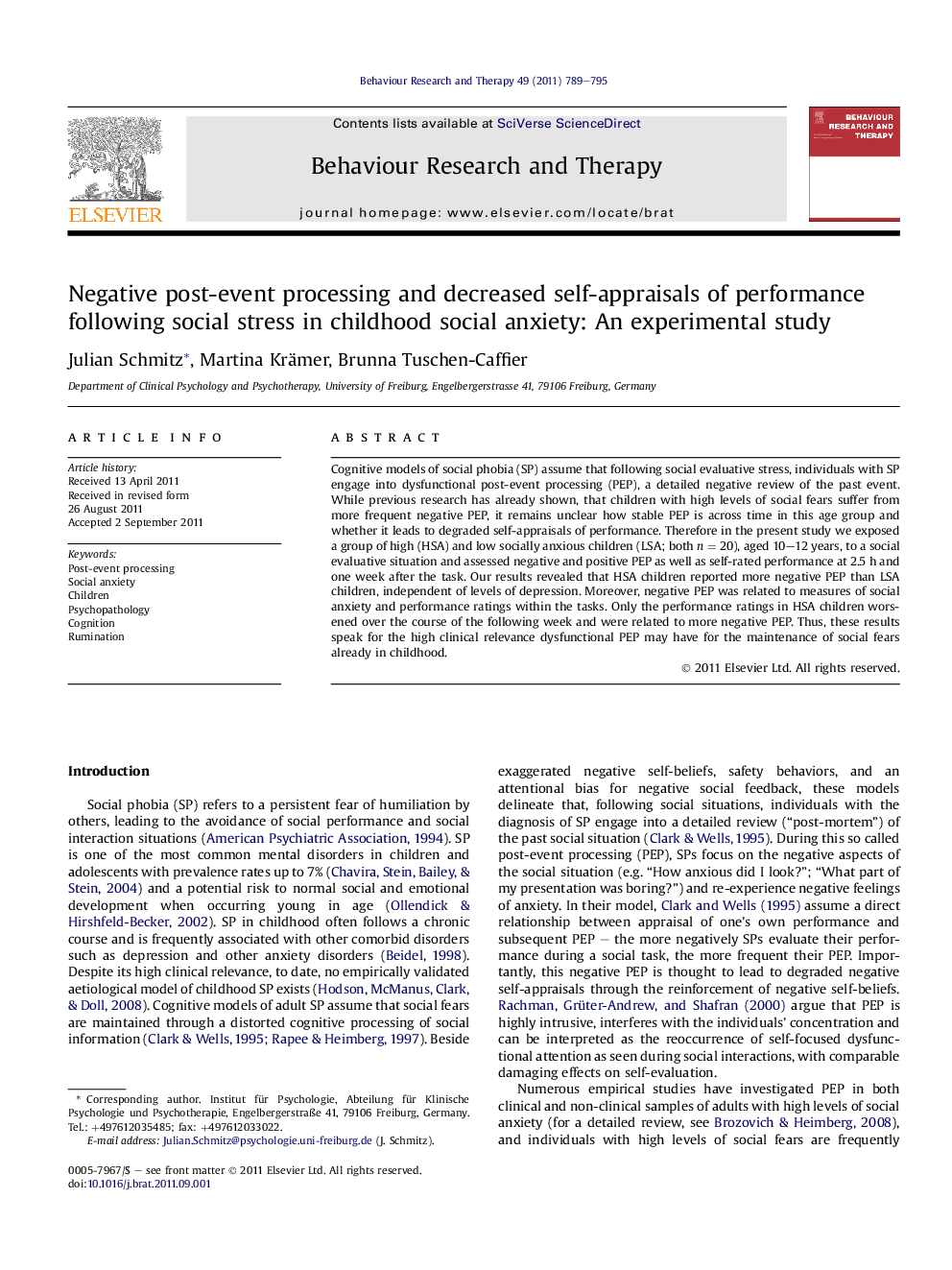| Article ID | Journal | Published Year | Pages | File Type |
|---|---|---|---|---|
| 902005 | Behaviour Research and Therapy | 2011 | 7 Pages |
Cognitive models of social phobia (SP) assume that following social evaluative stress, individuals with SP engage into dysfunctional post-event processing (PEP), a detailed negative review of the past event. While previous research has already shown, that children with high levels of social fears suffer from more frequent negative PEP, it remains unclear how stable PEP is across time in this age group and whether it leads to degraded self-appraisals of performance. Therefore in the present study we exposed a group of high (HSA) and low socially anxious children (LSA; both n = 20), aged 10–12 years, to a social evaluative situation and assessed negative and positive PEP as well as self-rated performance at 2.5 h and one week after the task. Our results revealed that HSA children reported more negative PEP than LSA children, independent of levels of depression. Moreover, negative PEP was related to measures of social anxiety and performance ratings within the tasks. Only the performance ratings in HSA children worsened over the course of the following week and were related to more negative PEP. Thus, these results speak for the high clinical relevance dysfunctional PEP may have for the maintenance of social fears already in childhood.
► We examine post-event processing and performance ratings in high and low socially anxious children. ► All children were exposed to a social performance situation. ► High anxious children reported more negative post-event processing after 2.5 h and after one week. ► Self-appraisals of performance worsened across one week only in high anxious children. ► Post-event processing may be an important factor for the maintenance of social fears in children.
